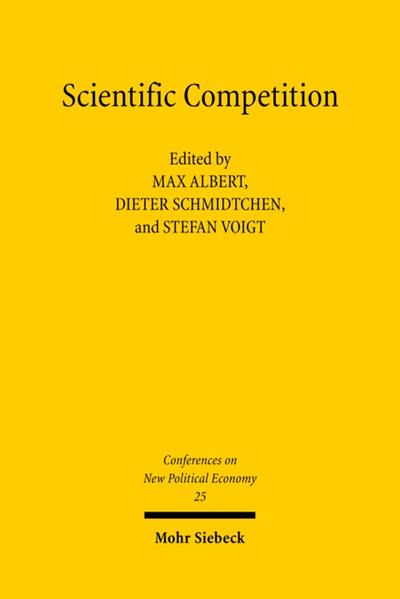ALBERT,M., Conferences on New Political Economy. Tübingen 2008.
Conferences on New Political Economy. Vol. 25: Scientific Competition. 1. Aufl. Tübingen, Mohr Siebeck, 2008.
24 x 16 cm. VI, 317 S. Leinen. (Conferences on New Political Economy (früher: Jahrbuch für Neue Politische -konomie), 25). ISBN 9783161494130.
Is science a ‘market of ideas’? Not according to the economics of science. Science is competitive, but scientific competition is not market competition. Nor is scientific competition the same as competition between universities. Scientific competition is, first of all, competition between individual scientists. Current science policies shift the boundary between scientific competition, where scientists provide public goods in the hope to acquire status among their peers, and market competition in science, where the results of research are private property protected by patents or other means, in favor of the market. However, the economic ring of the political slogans cannot conceal a serious lack of understanding of scientific competition behind the reform proposals. Like market competition, scientific competition is highly complex, involving many different institutions-universities, markets, funding organizations, scientific journals and others-and using its own decision procedures, typically based on peer review. How do these institutions work, and how do they interact? Will academic labor markets still attract the scientific talent in the near future? How should universities decide whom to hire? Is the peer review process reliable? Can we find out what science has to tell us by letting scientists vote on the issues? Why do scientists mostly stick to the rules? This volume sheds new light on these and other aspects of science and scientific competition, with theoretical and empirical contributions from economics, law, political science, sociology, and philosophy of science. This title was made possible in Open Access within the Knowledge Unlatched Select Round 2018 by numerous participating libraries.
Order Number: 569VB
Fixed Retail Price: EUR 179,--

